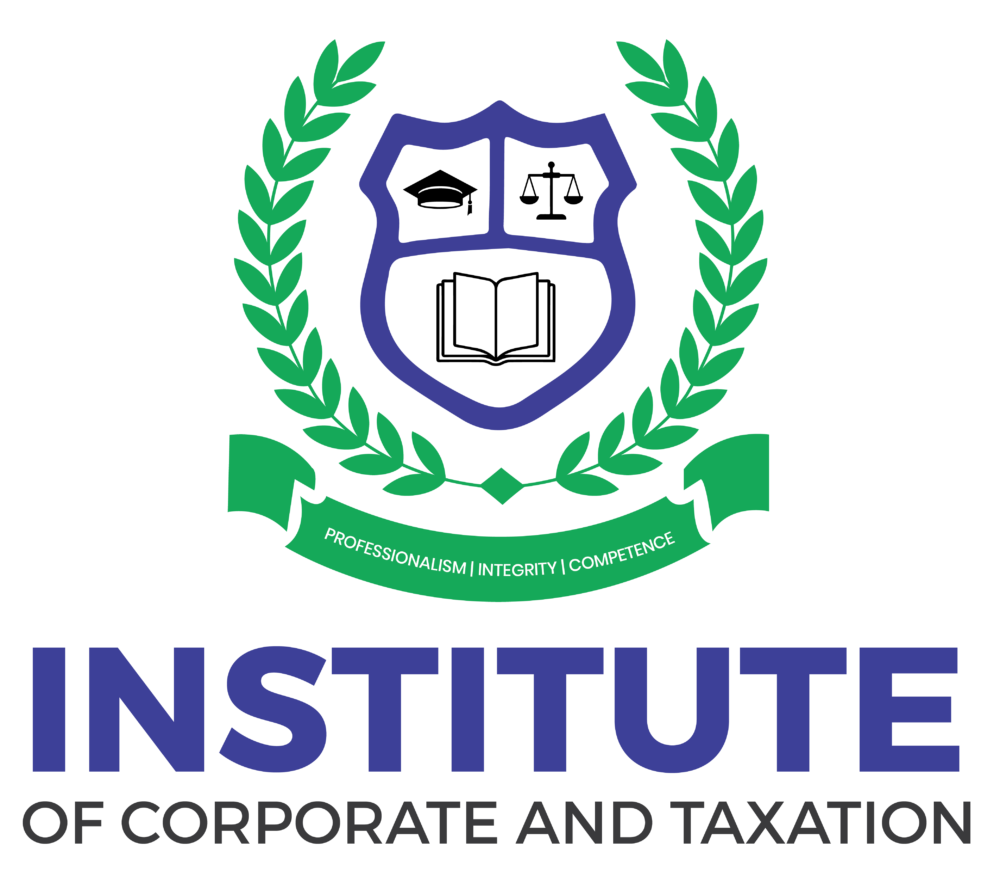
What Pakistani Students Must Know About UK Taxation Exams
What Pakistani Students Must Know About UK Taxation Exams
If you’re a Pakistani student eyeing a career in international finance, accounting, or tax consultancy, UK taxation qualifications could be your golden ticket. The UK tax system is recognized worldwide, and earning a UK taxation certification opens doors not just in Britain, but across global markets. Whether you’re in Islamabad, Lahore, or Karachi, understanding what these exams entail and how to prepare for them can set you apart in today’s competitive job market. Let’s explore everything you need to know about pursuing UK taxation courses and exams from Pakistan.
Why Pakistani Students Should Consider UK Taxation Courses
The demand for qualified tax professionals has never been higher. As businesses expand internationally and tax regulations become more complex, companies need experts who understand global tax frameworks. A UK taxation course offers Pakistani students a competitive edge that local qualifications alone might not provide.
First, UK tax certifications are globally recognized. Whether you want to work with multinational corporations in Pakistan or relocate abroad, credentials like ACCA taxation papers or ICAEW tax certifications carry significant weight. Employers value professionals who understand HMRC compliance, UK tax laws, and international taxation principles.
Second, the UK has well-established double taxation treaties with Pakistan. This means understanding UK tax policy and compliance isn’t just academically valuable—it has practical applications for Pakistani businesses operating internationally. Tax consultants who grasp both systems become invaluable assets to companies managing cross-border transactions.
Third, career opportunities are expanding. Pakistani accounting firms, international audit companies, and financial institutions actively seek professionals with UK taxation qualifications. The salary potential increases significantly when you add international certifications to your resume. Entry-level tax consultants in Pakistan with UK qualifications can earn 40-60% more than their locally-qualified counterparts.
Understanding the UK Tax System for Beginners
Before diving into exam preparation, it’s essential to understand what makes the UK tax system unique. The British taxation framework covers several key areas that any aspiring tax professional must master.
Core Components of UK Taxation
The UK tax system revolves around HMRC (Her Majesty’s Revenue and Customs), the government body responsible for tax collection and compliance. Unlike Pakistan’s Federal Board of Revenue, HMRC operates with a more digitalized, self-assessment-based system.
Individual Income Tax: The UK uses a progressive tax structure with different tax bands. Understanding personal allowances, tax-free thresholds, and marginal rates is fundamental to any UK taxation course.
Corporate Taxation: UK companies face different tax treatments than Pakistani businesses. Corporate tax rates, allowable deductions, capital allowances, and corporation tax filing all require specific knowledge that your course will cover thoroughly.
Value Added Tax (VAT): This consumption tax is central to UK business operations. Learning VAT registration thresholds, standard versus zero-rated supplies, and VAT returns is crucial for any tax consultant.
National Insurance Contributions: These payroll taxes fund social security benefits. Understanding employer and employee contributions is essential for payroll compliance work.
What UK Taxation Courses Cover
A comprehensive UK taxation qualification for Pakistanis typically includes several core modules designed to build your expertise progressively.
Most UK accounting and taxation courses start with foundational concepts before moving to advanced topics. You’ll study the UK income tax structure, learn how to calculate tax liabilities for individuals and businesses, and understand tax planning strategies that minimize legal tax burdens.
Advanced modules delve into corporate taxation UK frameworks, including transfer pricing, group relief, and international tax considerations. You’ll also explore inheritance tax, capital gains tax, and specialized areas like taxation of trusts and partnerships.
The course covers areas like personal tax, corporate tax, VAT, and HMRC filing rules—all essential knowledge for anyone pursuing a career as a UK tax professional. Many programs align with ACCA and ICAEW standards, ensuring your qualification meets international benchmarks.
Eligibility and Requirements for UK Tax Exams (2025 Update)
Good news: you don’t need to be in the UK to take UK taxation exams. The eligibility criteria are straightforward and accessible for Pakistani students.
Educational Requirements
Most UK taxation diploma programs require at least intermediate (FSc/FA/ICS) completion. Some advanced certifications prefer graduates, especially those with backgrounds in commerce, accounting, or business administration. However, many institutions offer beginner-friendly courses that start from foundational concepts.
No Geographic Barriers
Thanks to digital transformation, Pakistani students can now access UK taxation online courses from anywhere. Many examining bodies offer computer-based exams in Pakistan or fully remote testing options. This accessibility has revolutionized professional education, making world-class qualifications achievable without expensive international travel.
Language Proficiency
Since exams are in English, you need reasonable proficiency in reading and writing English. This isn’t usually a barrier for Pakistani students, as English is widely used in higher education and professional settings here.
Course Duration
How long does it take to complete a UK taxation course? Most certificate-level programs run 3-6 months with consistent study. Diploma courses might extend to 8-12 months. Advanced professional qualifications like ACCA taxation papers can take 1-2 years when combined with other accounting subjects.
UK Taxation vs Pakistani Taxation: Key Differences
Understanding these differences helps Pakistani students contextualize what they’re learning and see how UK knowledge applies locally.
Tax Structure: The UK uses a more progressive income tax system with multiple bands, while Pakistan has a simpler structure. UK tax-free personal allowances are higher relative to living costs.
Digital Systems: HMRC’s Making Tax Digital initiative has pushed the UK ahead in digital tax filing and record-keeping. Pakistan is making strides with FBR e-portal, but the UK system is generally more advanced.
Business Taxation: UK corporate tax is simpler in some ways, with fewer exemptions than Pakistan offers. However, UK anti-avoidance rules are more sophisticated.
Compliance Culture: The UK operates heavily on self-assessment, placing responsibility on taxpayers and their advisors. Pakistan has more direct assessment in certain areas, though self-assessment is growing.
These differences don’t diminish the value of UK taxation training for Pakistan-based professionals. Instead, they enhance your versatility, making you valuable in both local and international contexts.
Top Institutions Offering UK Taxation Courses in Pakistan
Several reputable institutions now offer UK taxation courses tailored for Pakistani students, with options in major cities and online.
Physical Training Centers
UK taxation course in Islamabad: The capital hosts several institutes providing comprehensive taxation training. The ICT – Institute of Corporate and Taxation Islamabad stands out for its industry-aligned curriculum and experienced instructors who bring real-world tax consultancy experience into the classroom.
UK taxation course in Lahore: As Pakistan’s educational hub, Lahore offers numerous options for aspiring tax professionals. Many institutes there provide ACCA-aligned taxation modules alongside local CA coaching.
UK taxation course in Karachi: Pakistan’s commercial capital naturally attracts quality taxation training providers. Karachi-based institutes often have strong connections with accounting firms and corporations seeking qualified tax consultants.
Online Learning Options
The rise of online UK taxation courses has been game-changing. Platforms now offer live classes, recorded lectures, digital study materials, and online exam preparation—all accessible from anywhere in Pakistan. Some international providers even offer UK taxation course online free introductory modules, letting you explore the field before committing financially.
When choosing where to study, consider factors like instructor credentials, pass rates, job placement support, and whether the course offers certification recognized by bodies like ACCA or ICAEW.
Career Opportunities After Passing UK Taxation Exams
What happens after you earn your UK tax certification? The career possibilities are exciting and diverse.
Tax Consultancy Firms
Accounting and tax advisory firms actively recruit professionals with UK taxation qualifications. You might start as a tax associate, helping clients with tax planning, compliance, and advisory services. As you gain experience, progression to senior consultant, manager, and eventually partner becomes possible.
Corporate Tax Departments
Large corporations need in-house tax experts to manage their obligations, plan tax-efficient structures, and ensure compliance across jurisdictions. With UK taxation expertise, you’re well-positioned for roles in multinational companies operating in Pakistan or for Pakistani companies with UK operations.
International Opportunities
Your UK tax consultant certification is your passport to working abroad. Commonwealth countries, Middle Eastern financial hubs, and European nations all value UK taxation qualifications. Many Pakistani professionals use these credentials as stepping stones to careers in Dubai, London, Toronto, or other global financial centers.
Independent Practice
Once you’ve built experience and reputation, you can establish your own tax consultancy practice. The combination of UK and Pakistani taxation knowledge makes you uniquely valuable to businesses operating across both markets.
Salary Expectations
While salaries vary by role and location, UK-qualified tax professionals in Pakistan typically earn between PKR 50,000-150,000 monthly in early career positions. Mid-career professionals with 5-7 years experience can command PKR 200,000-400,000 monthly, especially in senior roles or with Big Four firms.
How to Pass UK Taxation Papers from Pakistan
Success in UK taxation exams requires strategic preparation. Here are proven tips from successful candidates:
Build Strong Foundations
Don’t rush into complex topics without understanding fundamentals. Master the basics of UK income tax structure and tax calculation before tackling advanced corporate taxation scenarios.
Practice Calculations Regularly
Taxation isn’t purely theoretical. You’ll face numerical questions requiring precise calculations. Regular practice with past papers and specimen questions builds the speed and accuracy you need.
Understand the “Why” Not Just the “How”
Tax laws exist for reasons. Understanding the policy intentions behind rules helps you remember them better and apply them correctly in exam scenarios.
Use Quality Study Resources
Invest in official study texts, practice question banks, and revision materials. Many successful students also find study groups helpful, where you can discuss difficult concepts with peers preparing for the same exams.
Follow HMRC Updates
Tax laws change. Even during your study period, stay aware of significant HMRC policy changes or UK budget announcements that might affect exam content.
Consider Professional Guidance
Enrolling in a structured UK tax training Pakistan program provides expert instruction, organized curriculum, and peer support. Self-study is possible, but guided learning typically yields better results, especially for complex taxation topics.

Why Choose ICT – Institute of Corporate and Taxation Islamabad
When selecting where to pursue your UK taxation qualification, the right institution makes all the difference. The ICT – Institute of Corporate and Taxation Islamabad offers several advantages for serious students:
Their curriculum aligns with international standards while being contextually relevant for Pakistani students. Instructors bring practical tax consultancy experience, not just academic knowledge. This real-world perspective helps you understand how theoretical concepts apply in practice.
The institute offers flexible learning options, including weekend batches for working professionals and intensive programs for students wanting to complete qualifications quickly. Small batch sizes ensure personalized attention and opportunities to ask questions.
ICT also provides comprehensive support beyond just lectures—practice materials, exam preparation workshops, and career guidance help students not just pass exams but launch successful careers.
For those serious about building expertise in both UK and Pakistani taxation, exploring advanced taxation courses at ICT provides a pathway to becoming a truly versatile tax professional.
Free and Paid Resources for UK Taxation Study
Balancing budget with quality education is important. Here’s how to access learning resources at different price points:
Free Resources
HMRC Website: The official HMRC site offers guidance, tax rate information, and policy documents—all free and authoritative.
YouTube Channels: Several tax professionals and educators post free tutorial videos covering UK taxation topics. These work well for visual learners and concept clarification.
Government Publications: Budget reports, tax legislation summaries, and HMRC guidance notes are publicly available and provide authentic source material.
Online Forums: Professional accounting forums often have taxation sections where you can ask questions and learn from others’ queries.
Paid Resources
Official Study Texts: ACCA, ATT (Association of Taxation Technicians), and CIOT (Chartered Institute of Taxation) all publish comprehensive study materials specifically designed for their exams.
Professional Courses: Enrolling in a structured UK taxation course in Pakistan provides systematic learning, expert instruction, and exam-focused preparation that self-study often lacks.
Question Banks: Paid practice question subscriptions give you access to thousands of exam-style questions with detailed answers—invaluable for exam preparation.
Tuition: One-on-one tutoring or small group classes offer personalized guidance through difficult topics.
Most successful students combine free and paid resources strategically—using free materials for general learning and investing in paid resources for exam-specific preparation.
The Future of Taxation Careers in Pakistan
The outlook for tax professionals is exceptionally bright. Several trends are shaping the future of this field:
Increasing Complexity: As Pakistani businesses grow internationally and tax regulations evolve, demand for sophisticated tax expertise continues rising. Professionals who understand both local and international frameworks are particularly valuable.
Digital Transformation: FBR’s digitalization efforts and Pakistan’s growing tech sector create demand for tax professionals who understand digital economies, cryptocurrency taxation, and e-commerce tax issues—areas where UK taxation knowledge provides relevant frameworks.
International Compliance: With FATCA, CRS, and other international tax information exchange agreements, Pakistani businesses and individuals with global assets need advisors who understand cross-border taxation. Your UK taxation certification positions you perfectly for this growing market segment.
Professional Services Growth: Pakistan’s accounting and advisory sector is expanding. International firms and growing local practices both need qualified tax professionals to serve increasingly sophisticated client needs.
Frequently Asked Questions
How can Pakistani students apply for UK taxation exams?
Pakistani students can register directly through examining bodies’ websites like ACCA, ATT, or CIOT. Many exams are now available as computer-based tests at authorized centers in Pakistan or can be taken remotely online. You’ll need to create an account, select your exam session, pay the fee, and prepare according to the syllabus provided.
What is the best UK taxation course in Pakistan?
The best course depends on your goals and background. For comprehensive training combining practical knowledge with exam preparation, ICT – Institute of Corporate and Taxation Islamabad offers excellent programs. For internationally recognized professional qualifications, ACCA taxation papers or ATT qualifications are highly regarded. Consider factors like instructor quality, pass rates, study support, and career services when choosing.
Is UK tax certification valid internationally?
Yes, absolutely. UK taxation qualifications from recognized bodies like ACCA, ICAEW, CIOT, and ATT are respected globally. Commonwealth countries particularly value these credentials, but they’re also recognized by multinational corporations and international accounting firms worldwide. This international validity is one of the key advantages of pursuing UK taxation certification.
Can I take UK taxation exams online?
Yes, many UK taxation exams are now available online. Computer-based exams can be taken at approved test centers in Pakistan, while some qualifications offer remote proctored exams you can take from home. Check with your specific examining body for available options, as some advanced professional exams may still require in-person attendance.
What is the scope of UK taxation in Pakistan?
The scope is broad and growing. UK-qualified tax professionals in Pakistan work with multinational corporations, international accounting firms, banks, financial institutions, and businesses with UK operations. You can also work in tax consultancy, corporate tax departments, or establish independent practice. The UK-Pakistan professional training collaborations make it easier than ever to prepare for taxation exams remotely and build careers bridging both markets.
How long does it take to complete a UK taxation course?
Duration varies by qualification level. Certificate courses typically take 3-6 months with consistent study. Diploma programs run 8-12 months. Professional qualifications like full ACCA or ICAEW certifications (which include taxation among other subjects) can take 2-3 years. Many students study part-time while working, which extends the timeline but allows you to earn while learning and immediately apply new knowledge in your job.
Conclusion: Your Path to International Tax Expertise Starts Now
The journey to becoming a UK-qualified tax professional is challenging but deeply rewarding. You’ll gain knowledge that’s valued globally, skills that are increasingly in demand, and credentials that open doors across continents.
Pakistani students are uniquely positioned to benefit from UK taxation qualifications. With Pakistan’s growing economy, increasing international business connections, and need for sophisticated tax expertise, your UK certification becomes more valuable every year. Whether you dream of working with international corporations, building your own consultancy, or relocating abroad, UK taxation credentials provide a proven pathway.
The beauty of today’s educational landscape is accessibility. You don’t need to travel to London or invest in expensive overseas education. Quality UK taxation courses are available right here in Pakistan—in Islamabad, Lahore, Karachi, and online from anywhere in the country.
Starting is the hardest part. Research your options, understand the commitment required, and take that first step. Whether you’re a fresh graduate exploring career options or a working professional seeking to upskill, there’s a UK taxation pathway suitable for your situation.
Ready to transform your career with internationally recognized tax expertise? Book a seat at Advanced Taxation courses offered by ICT and join the growing community of Pakistani professionals who’ve leveraged UK qualifications to build successful, fulfilling careers in taxation and accounting. Your future as an international tax expert begins with the decision to start today.




